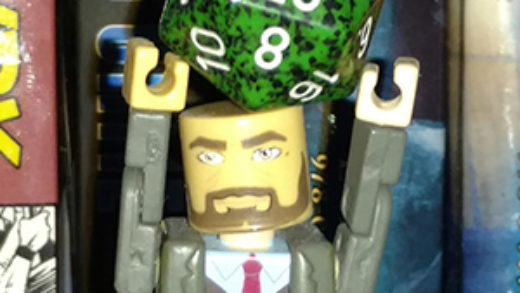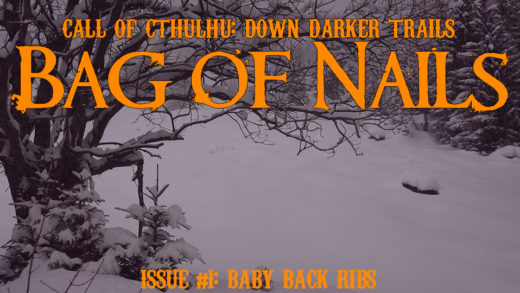Last week I wrote about introducing romance and love into a campaign. Valentine’s Day is over and this week I’m looking at the darker side of love and how one might incorporate it into a game.
The Break-Up
The characters have been together through a number of adventures, but find themselves realizing (for one reason or another) that their romance is not meant to be. If amicable, the break-up can be non-dramatic and this can be the best option if the relationship was between two player characters—which may still lead to future plot hooks or internal role-play when they find themselves “working with the ex.” Alternatively, the break-up could allow a player to change the nature of their character, making them more brooding, sorrowful, or angry.
If a break-up was initiated by a PC to and NPC, the GM may turn the previous love interest into an adversary. Should the NPC have been an action-type already, they may provide an immediate foil to the player characters. My preference, though, is for such break-ups to fade from the game, with the NPC returning later as a surprising force to be reckoned with.
Becoming an adversary can occur for a PC, too. In a past game, I had planned for my Fate Dresden Files game player character to start a trajectory towards evil following the end of a romance and eventually become an NPC and enemy to the party.
The Death and a Funeral
As a GM I try to avoid the “lover dies to force change/progress the storyline” AKA “women in refrigerators” trope, but the actions of a player or the events of a game my result in the death of a lover. When a love interest dies, it can provide characters with an impetus to alter their own nature.
This provides an opportunity for players to explore their character’s grief and how the character handles death. GMs can add depth to their game world by introducing a funeral scene. This can give insight to a religion or belief system within a game. Fantasy and space games, especially, can feel more unique when the characters participate in rites and rituals unique to the setting.
Sometimes They Come Back
In games with magic or super-science a death may not be the end for a romantic character. Sometimes they can be brought back either at the behest of a player character or behind the scenes as a GM. But rebirth can mean the formerly-passed love interest is no longer in love or has the same personality. In horror games, the undeath of a loved one can be used for particularly unpleasant and gruesome means, with complex feelings towards a creature that now wants to destroy the living.
Fatal Attractions
Best suited for the role of an NPC is a romantic interest that is so obsessed with a player character that any attention not directed towards them is seen as an affront. This type of “romance” may be the plot of an adventure; with the NPC subtly striking out at various PCs in the hopes of isolating the PC of their interest. This best works if the possessive NPC was a previous romance or liaison with the PC.
Unless friction between PCs is part of the game structure or this is a catalyst for player to remove their current character from a game (maybe to play something else), I would advise against this non-romantic “love” between PCs.
Unrequited Love
The offer of romance does not require the fruition of the relationship. Unrequited love can lead to the target character acquiring a stalker. It could also lead to the devotee becoming more and more obsessed, leading to an antagonistic “if i can’t have you, no one can” scenario. These situations work best with NPCs being the faux-jilted party.
Villainous Crush
A different, but similar type of unrequited love is an established antagonist building romantic and/or sexual feelings for a player character. This provides GMs with an opportunity for a more challenging/powerful character to “go easy” on the player characters, such as trapping the characters rather than killing them, or monologuing/soliloquizing long enough for the player characters to act. Villainous crushes are also likely to employ fatal attraction tactics. Alternatively, an adversary may play at or become an ally to the characters in order to be with the target of their affection. This could lead to a sudden treachery or a surprising new, if still unscrupulous, associate.


Recent Comments